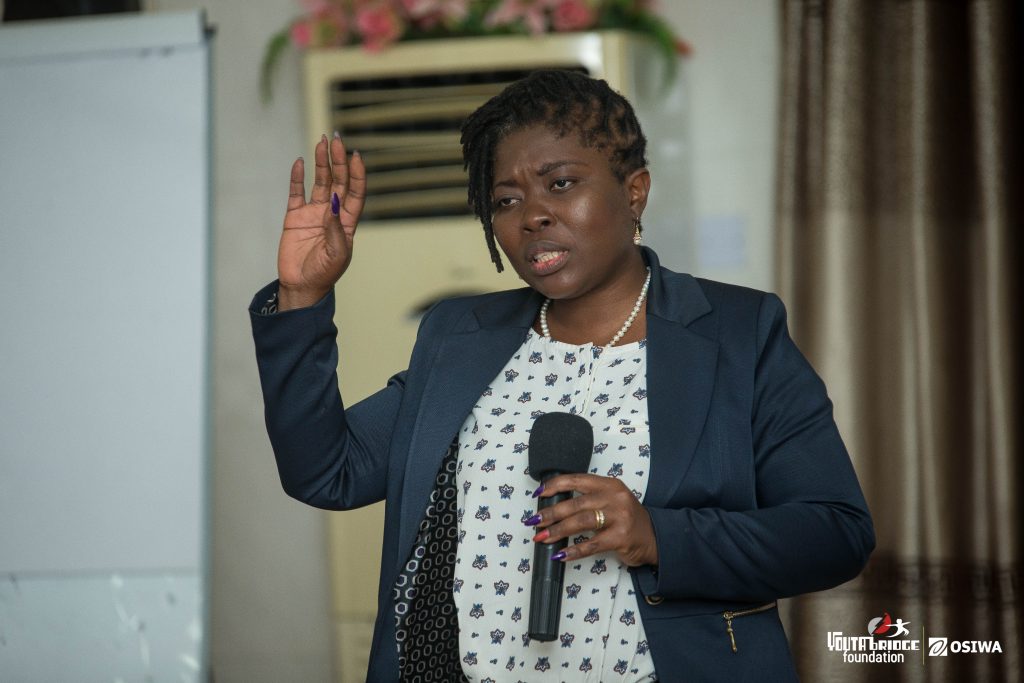Safeguarding the welfare of children and their freedom of expression in the country, Mrs Florence Ayisi Quartey, the Acting Director, Department of Children, at the Ministry of Gender, Children and Social Protection (MoGCSP), says, a collective approach is needed to project and protect the welfare of the youngsters.
She explained that, the Children’s Act, passed in 1998 binds leaders, parents, guardians and the country as a whole to protect children’s right, therefore it was well-timed Ghana developed and strengthened systems that would be more prevention focused towards the welfare of children.
“Every Child is entitled to express his or her fundamental human rights, to function well in society but it is incumbent on stakeholders to ensure these rights are enjoyed in a protected environment that holistically conform to the Child and Family Welfare Policy 2015,” she said.
Mrs Ayisi Quartey said this when she spoke on behalf of Hon Gifty Twum Ampofo, the Deputy Minister of Gender, Children and Social Protection at a Stakeholders Forum dubbed: “Access to Justice for Youth and Persons with Disability in Ghana” in Accra.
Organized by Youth Bridge Foundation (YBF), a youth focused Non-Governmental Organization committed to youth development in Ghana, the forum followed-up on initial consultations and sought to validate the key messages developed from the Child and Family Welfare Policy 2015 as well as the “PUZZLED” drama series.
She expressed happiness about YBF’s partnership with the Ministry towards the projection and promotion of the Child and Family Welfare Policy 2015 and its timeliness as the Ministry is planning towards public sensitization.
She further commended Open Society Initiative of West Africa (OSIWA) for the support to YBF.
Addressing stakeholders at the forum, Ms. Esther Yayra Attipoe, the Legal and Advocacy Manager of YBF said increasing awareness and deepening young person’s knowledge on the Children’s Act 560 and the Juvenile Justice Act 653, was appropriate.
She added that the inclusion of Persons with Disability (PWD’s) in sensitization engagements especially on the National Child and Family Welfare Policy 2015 was timely.
Ms. Attipoe who is also the Project Manager of “Access to Justice for Youth and Persons with Disability in Ghana” implemented by YBF with funding from OSIWA explained that engaging younger persons with disability, on their rights to participate in decision making processes at the local levels would create the platforms for their engagements with local government officials.
According to the Project Manager, in line with building on the Foundation’s previous children’s right intervention, “Securing the Future of Young People in Ghana through Improved Juvenile Justice Administration” is the second phase of the project rolled out.
With the overall objective of securing young people in Ghana through improved Juvenile Justice as the inclusion PWD’s in decision making processes, “This new Project hopes to scale-up successes and lessons learnt from phase one; basically, through advocacy for policy makers to produce policies in accessible formats for young persons with disability while consolidating key stakeholders’ engagement to deepen ownership,” she said.
She mentioned that the ongoing Project is being implemented in six districts in three regions of the country.
“These are Suhum Municipality and Akwapim North district in the Eastern Region, Agona West and Cape Coast Metropolitan in the Central Region and Ahanta-West and Sekondi Takoradi Metropolitan Assembly in the Western Region,” she said.
Mr Seth Oteng, the Executive Director of YBF, said: “Our commitment to youth –inclusive development is critical for nation building” stressing that opportunities must be equitably shared without any discrimination.
“That is why YBF is championing policies such as Right of the Juvenile to Justice to enhance youth development,” he said.
Mr. Oteng recounted how most of the time the policies are difficult to be understood by the young ones, and called for better capacity building approaches and platforms that would be used to engage the youth in friendly discourse for better understanding of the countries policies by young people.
He also expressed worry about the lack of capacity among the youth to appreciate the beautifully worded and well-intended policies as well as the platforms to engage in discourse creating gaps in the implementation of the Child and Family Welfare Policy. He added that; “these gaps needs to be addressed for the development of the youth.”
Touching on the “PUZZLED”, a drama series based on key messages developed by YBF from the Child and Family Welfare Policy 2015, that brings to bare some of the inhumane plights the youth are exposed to in the country and set to be premiered by YBF, Mr. Oteng noted that he was looking forward to see the “PUZZLED” helping solve societal ills confronting the youth in the country.
The 13-episode drama series, is an implemented initiative of the YBF, and funded by OSIWA.
The forum brought together about 26 participants drawn from government machinery and agencies that included the MoGCSP, Department of Social Welfare, Teachers and parents from Special Schools in Project districts, youth-led community-based organizations as well as in and out-of-school youth that included PWD’s.
As part of events marking the forum, “PUZZLED”, which forms part of activities, marking the phase two implementation of the “Access to Justice for Youth and Persons with Disability in Ghana” Project was previewed.
YBF has the mandate of creating supportive platforms to challenge the creativity of the youth, and to make available critical information and resources needed for their total development.
As a youth focused group, it has the vision of equipping the youth with appropriate information, platforms and resources that would enhance their physical, mental and socio-economic well-being and further help develop them into responsible adults.
SOURCE: YBF COMMUNICATIONS DEPARTMENT.

